The South Africans trying to keep their neighbourhoods safe after deadly riots
South Africans are patrolling their local communities to try and keep people safe, fearing more unrest following the wave of deadly riots earlier this month.
Meshandren Naidoo is among them, joining his neighbourhood watch group in the city of Durban.
He said some South African communities fear there won’t be enough protection from police if the situation were to reignite.
“In my area, there are still quite a few shootings,†he told SBS News from Durban.
“There is a lot of fear in communities as to when this will happen again, how long it will take to happen again.â€
00:00 / 00:00
Share
Violence has gripped South Africa following the imprisonment of former president Jacob Zuma.
Mr Zuma, 79, was sentenced to 15 months in prison for contempt of court last month after snubbing graft investigators probing his presidency. He denies any wrongdoing.
His incarceration sparked riots and looting that escalated into some of the worst violence since the end of apartheid, killing at least 330 people.
The unrest was allegedly orchestrated by several of Mr Zuma's close associates and fuelled by deepening economic and social inequality.
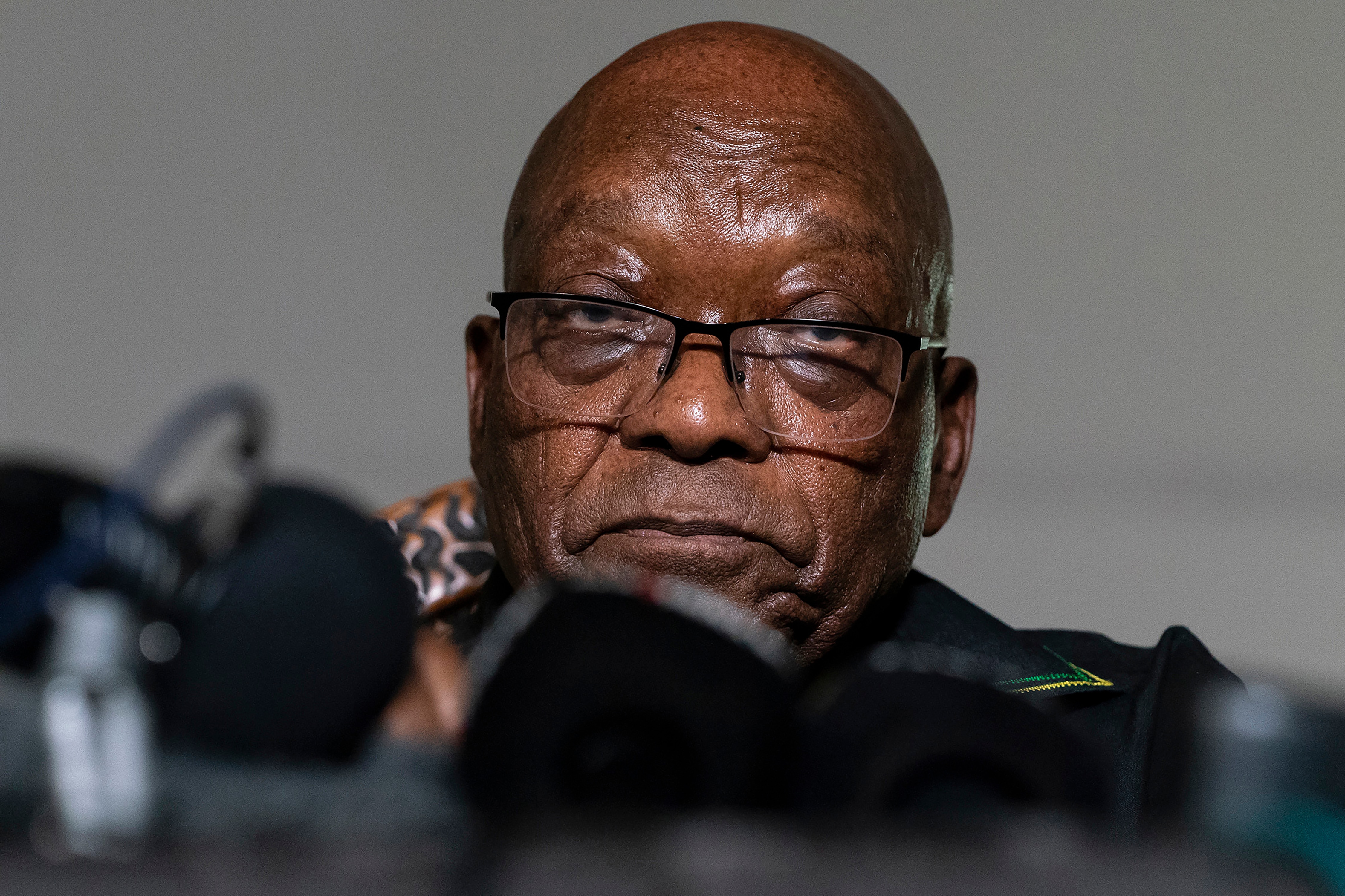
In this Sunday July 4, 2021 file photo, former Jacob Zuma addresses the press at his home
AP
Police had banned neighbourhood patrols in the immediate aftermath of the riots, but authorities are now allowing several groups to resume following community pressure.
“[With] the lack of security and police force that we've had in many areas … there's a lot of fear that's running through communities,†Mr Naidoo said.
Racial tensions are also escalating, Mr Naidoo said, with members of Durban's Indian community fearing they are being targeted.
A deadly confrontation between protesters and residents in the suburb of Phoenix - which has a large Indian population - has raised accusations of racial profiling and vigilante acts.
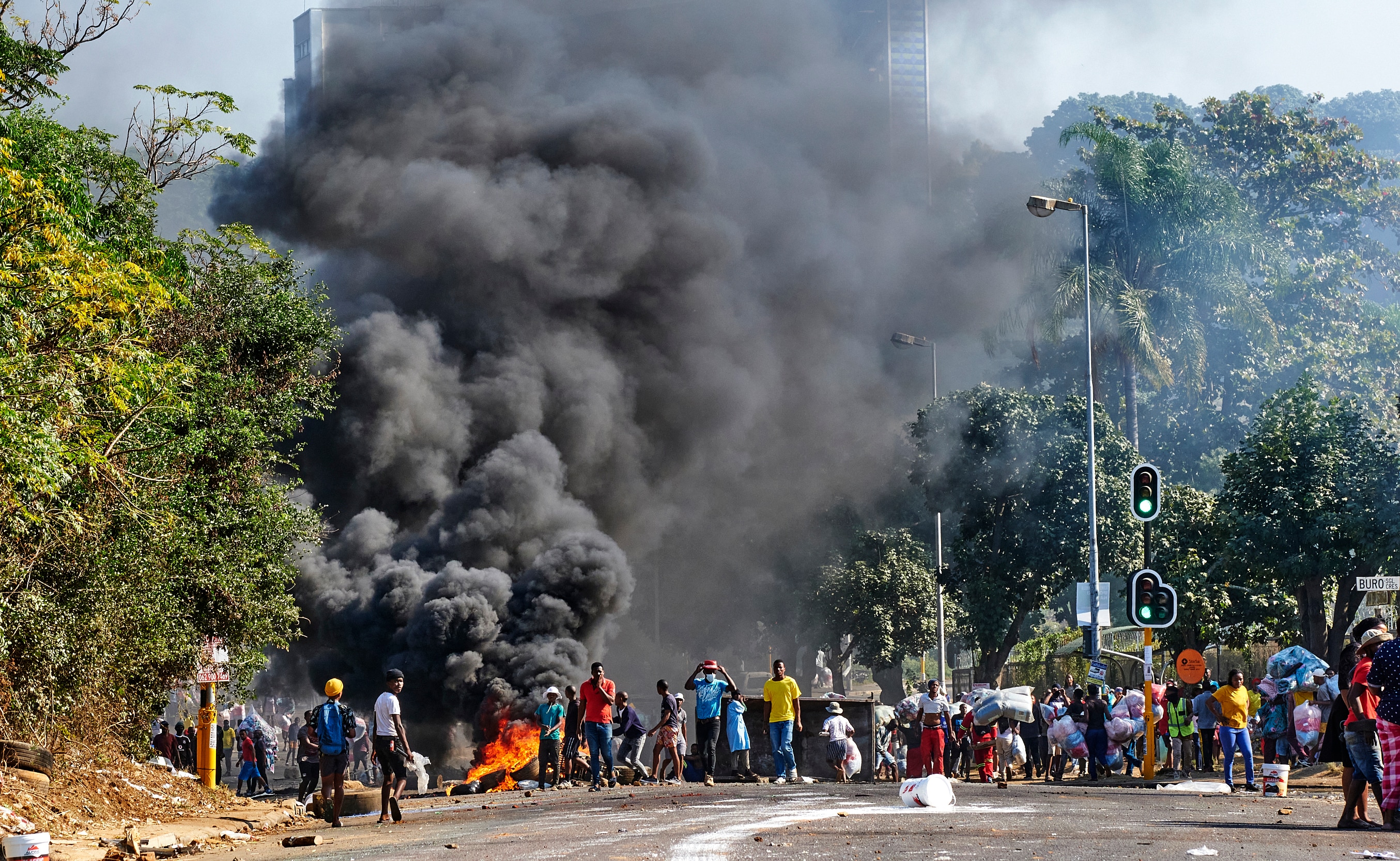
Looters outside a shopping centre alongside a burning barricade in Durban, South Africa, Monday July 12, 2021
AP
Mr Naidoo said that has lead to anti-Indian sentiment.
“There have been threats, via social media from nameless and faceless people calling for the killings of Indian people,†he said. “It seems to be targeted at the Indian race, rather than just those individuals who partook in this in these acts of violence.â€
Mr Zuma still faces 16 additional charges of fraud, corruption and racketeering from 1999 while he was deputy president.
Mr Naidoo fears whatever happens in court could spur further unrest.
“There is a lot of concern that this will actually happen again, depending on what's going on with the Zuma court procedure,†he said.
'Everything has been torched'For Chetan Bhoola, the riots have changed his life.
His Durban grain factory has been destroyed.
“Everything has been torched, the building is decimated completely. I've lost all my stock," he said.
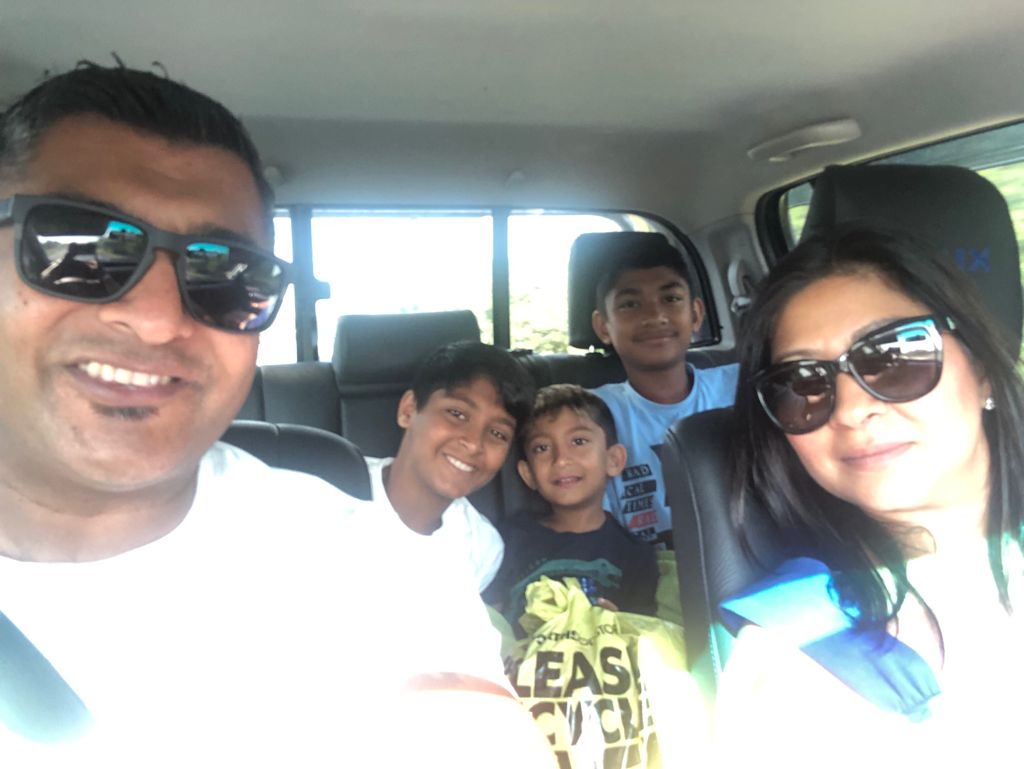
Chetan Bhoola with his family in Durban
Like many others in South Africa, his livelihood has been reduced to rubble, with millions of dollars worth of supplies destroyed.
“It took me years to build all of that … and now I'm having to start all over again,†he said.
He said he supports the neighbourhood watch approach and has joined some of the patrols.
“There is a physical presence on the entry, exit and entry points to all suburbs. The citizens of the community are basically just watching who goes in and who goes out,†he said.
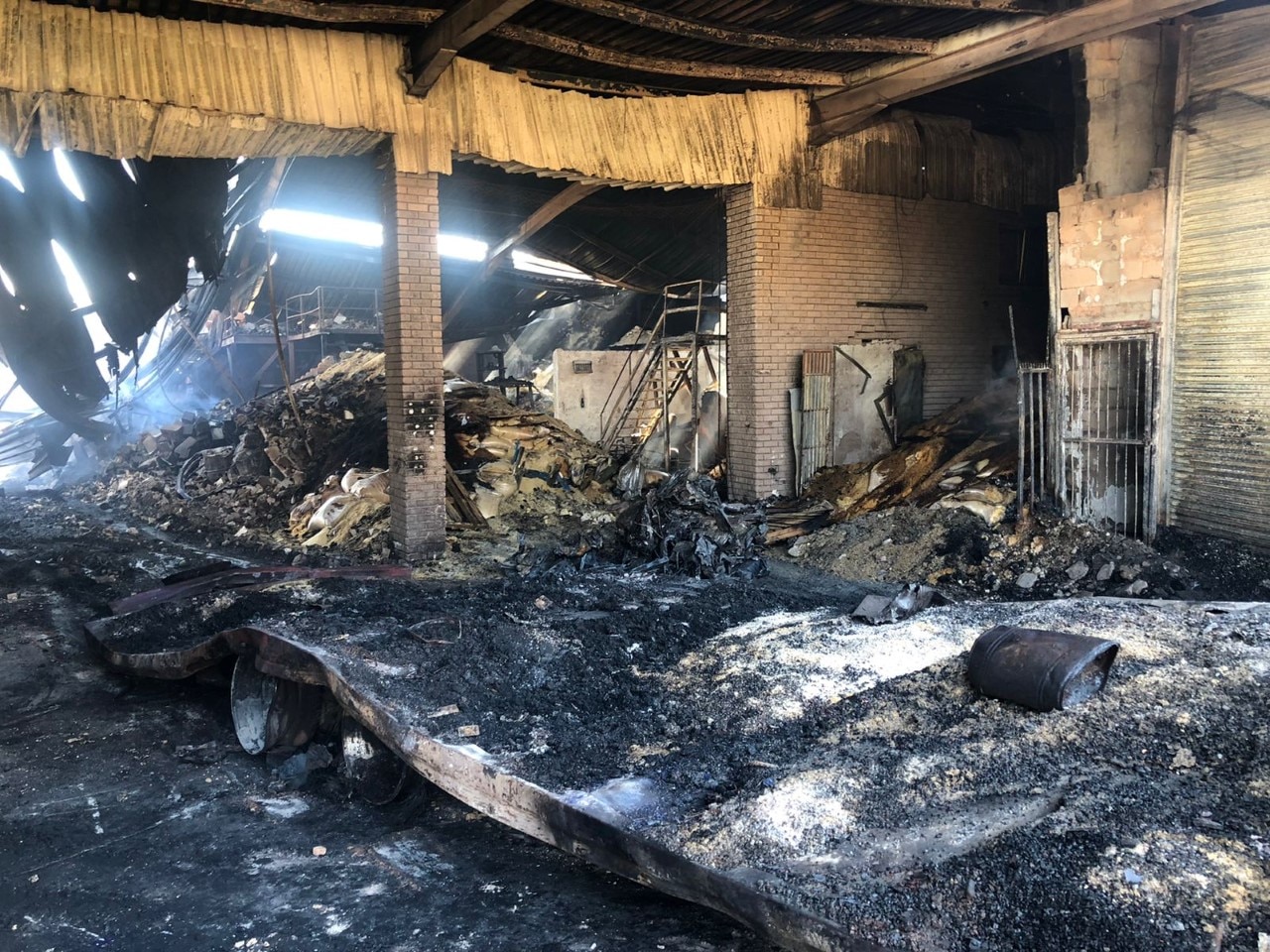
Chetan Bhoola's grain factory was set alight during the riots
The uncertainty is also proving to be a boon for security businesses, an industry already in high demand.
Deven Pillay owns security firm MEP Security in Durban.
He said his phone did not stop ringing during the riots.
“We were inundated with calls and requests to provide armed security [and] the requests keep coming in,†he said.
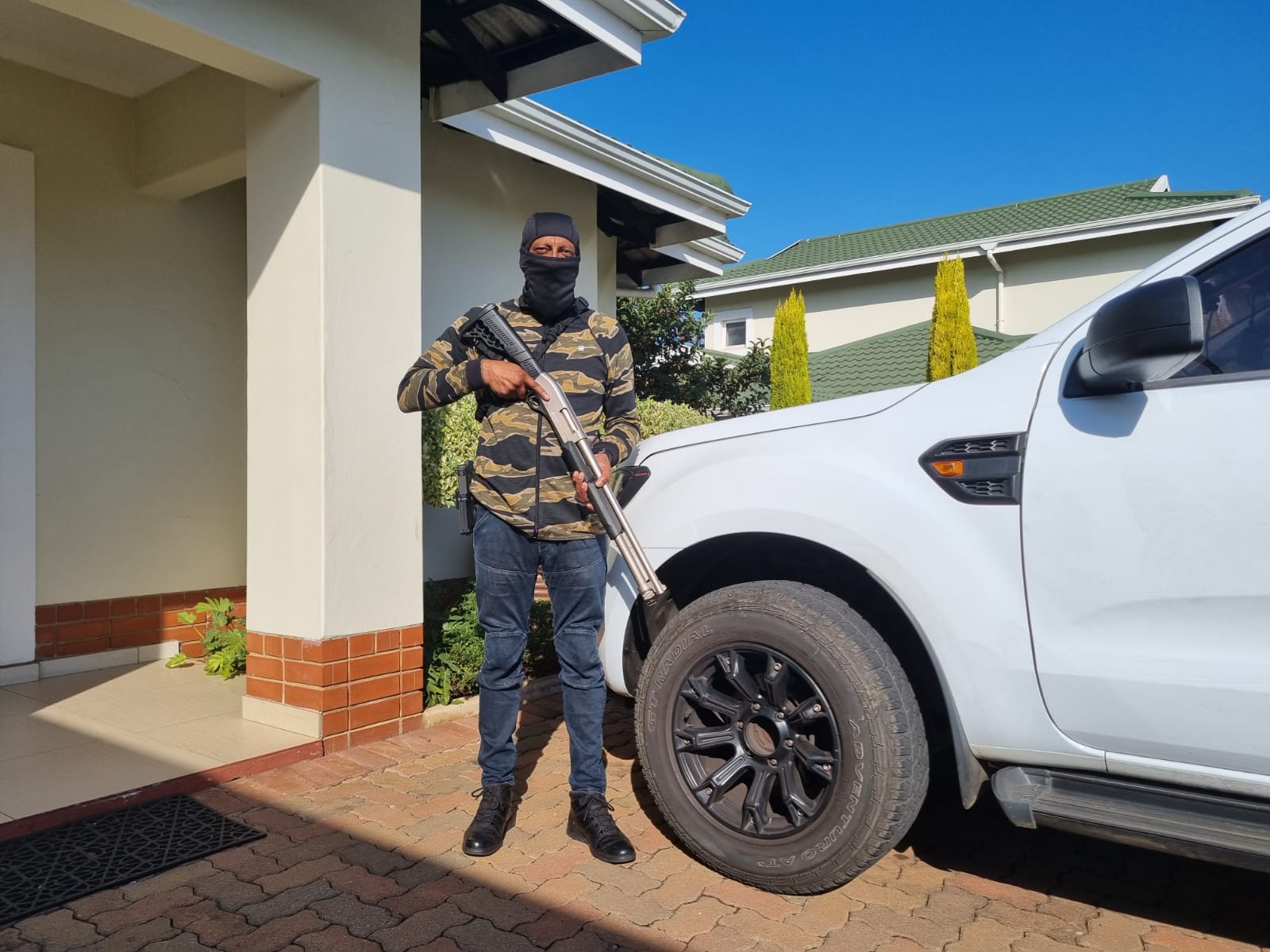
Deven Pillay owns a security company in Durban Source: Supplied
He is now planning for the worst, preparing local residents with evacuation drills and stocking emergency supplies should things take a turn - but he hopes it won’t be needed.
“We’re putting in disaster management plans. We're bringing in food that we could store. In case unrest does happen again, we are bringing in excess fuel,†he said.
With AFP.

0 Response to "The South Africans trying to keep their neighbourhoods safe after deadly riots"
Post a Comment